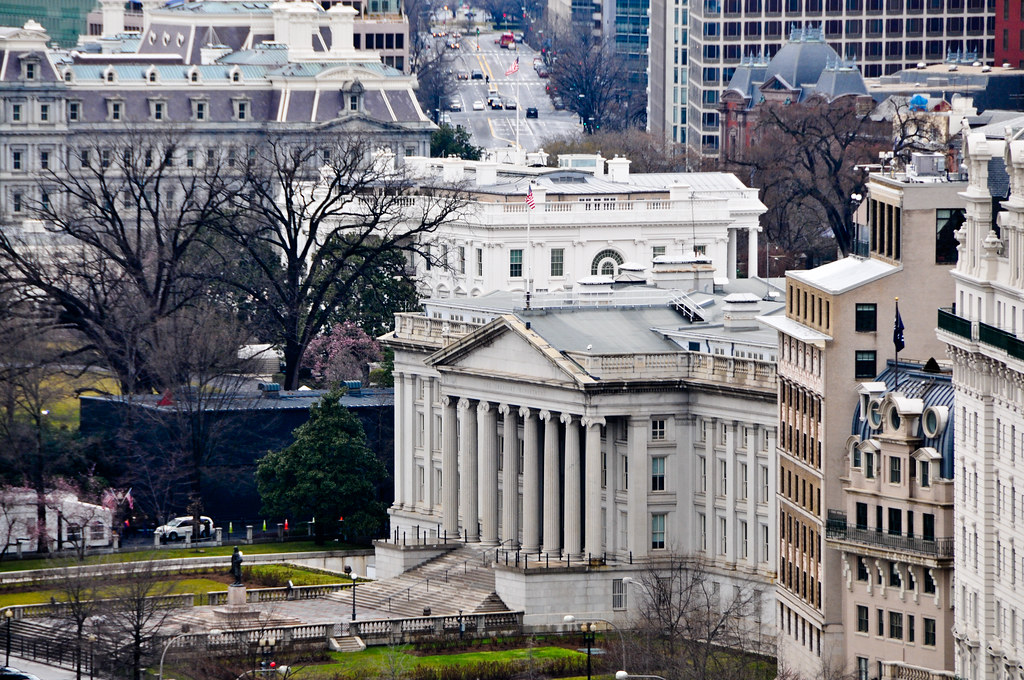Request Provides $216 Million for the Financial Crimes Enforcement Network
WASHINGTON, DC – Today, the White House released its discretionary budget request for fiscal year 2025. The request includes $216 million for Treasury’s Financial Crimes Enforcement Network (FinCEN), the bureau of the Treasury Department that serves as the financial intelligence unit of the United States and is responsible for implementing some of the most significant updates to U.S. anti-money laundering laws in the past twenty years. These reforms include steps to implement the bipartisan Corporate Transparency Act, as well as to bring long-overdue oversight to the massive and opaque U.S. real estate and private investment sectors.
The request also provides $231 million to Treasury’s Office of Terrorism and Financial Intelligence (TFI), which plays a key role in enforcing U.S. sanctions and further safeguarding the U.S. financial system from criminal and corrupt funds.
Congress has yet to approve funding for these offices for FY2024. The next deadline for an agreement on the relevant Financial Services and General Government (FSGG) appropriations bill is March 22.
Erica Hanichak, FACT government affairs director, said in a statement:
“Our nation’s financial crime fighters need crucial resources to block foreign and domestic criminals from stashing their ill-gotten gains in the U.S. financial system. FinCEN simply has too many important projects on its plate – from finalizing rulemakings to end the use of anonymous shell companies, to drafting long-overdue regulations clamping down on dirty money in U.S. real estate and private investment markets – for Congress to deny them these resources. The bureau needs a significant boost in funding to better fulfill its mandate as the nation’s front line of defense against financial crime.
“Congress has yet to approve funding for both Treasury’s sanctions office and its financial crime fighters for the current fiscal year. Any deal Congress reaches must at least maintain, if not increase, funding for these vital offices. This is particularly true of FinCEN, which has historically been understaffed and under-resourced. To shortchange FinCEN is to shortchange our national security.
“Now – when the threats facing the U.S. financial system from within and without are greater than ever – is the time to increase support for those protecting the U.S. financial system from dirty money. We encourage Chairman Chris Van Hollen, Ranking Member Bill Hagerty, Chairman Steve Womack, Ranking Member Steny Hoyer, and other congressional appropriators to increase funding for Treasury’s Financial Crimes Enforcement Network and Office of Terrorism and Financial Intelligence.”
###
Notes to the Editor:
- The President’s FY2025 discretionary budget request for FinCEN and TFI (p. 120).
- Congress is expected to reach an agreement on the next round of FY2024 appropriations bills, including FinCEN and TFI funding, on March 22. Both chambers’ initial FY2024 appropriations bids for FinCEN fell short of meeting the President’s contemporaneous request of $229 million, instead proposing $190 million and $166 million to the bureau respectively. Likewise, congressional FY2024 proposals for TFI fell below the same presidential request of $244 million (the House proposed $206 million, whereas the Senate proposed $221 million).
- The illicit finance threat in the U.S. financial system is significant. In 2022, Treasury estimated that illicit funds equaling 2 percent of the U.S. GDP, or roughly $460 billion, moved through the U.S. financial system each year (p. 23). Treasury Secretary Janet Yellen has repeatedly stated that, “There’s a good case that right now, the best place to hide and launder ill-gotten gains is actually the United States.”

